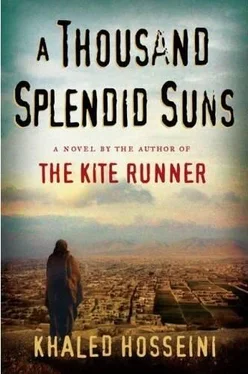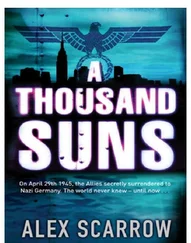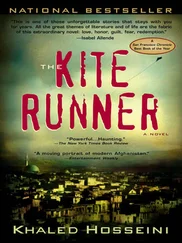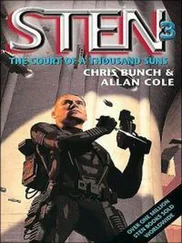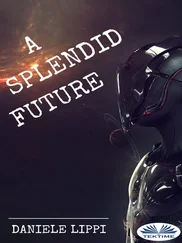Aziza shrieked at the thumping of mortars. To distract her, Mariam arranged grains of rice on the floor, in the shape of a house or a rooster or a star, and let Aziza scatter them. She drew elephants for Aziza the way Jalil had shown her, in one stroke, without ever lifting the tip of the pen.
Rasheed said civilians were getting killed daily, by the dozens. Hospitals and stores holding medical supplies were getting shelled. Vehicles carrying emergency food supplies were being barred from entering the city, he said, raided, shot at. Mariam wondered if there was fighting like this in Herat too, and, if so, how Mullah Faizullah was coping, if he was still alive, and Bibijo too, with all her sons, brides, and grandchildren. And, of course, Jalil. Was he hiding out, Mariam wondered, as she was? Or had he taken his wives and children and fled the country? She hoped Jalil was somewhere safe, that he'd managed to get away from all of this killing.
For a week, the fighting forced even Rasheed to stay home. He locked the door to the yard, set booby traps, locked the front door too and barricaded it with the couch. He paced the house, smoking, peering out the window, cleaning his gun, loading and loading it again. Twice, he fired his weapon into the street claiming he'd seen someone trying to climb the wall.
"They're forcing young boys to join," he said. "The Mujahideen are. In plain daylight, at gunpoint. They drag boys right off the streets. And when soldiers from a rival militia capture these boys, they torture them. I heard they electrocute them – it's what I heard – that they crush their balls with pliers. They make the boys lead them to their homes. Then they break in, kill their fathers, rape their sisters and mothers."
He waved his gun over his head. "Let's see them try to break into my house. I'll crush their balls! I'll blow their heads off! Do you know how lucky you two are to have a man who's not afraid of Shaitan himself?"
He looked down at the ground, noticed Aziza at his feet. "Get off my heels!" he snapped, making a shooing motion with his gun. "Stop following me! And you can stop twirling your wrists like that. I'm not picking you up. Go on! Go on before you get stepped on."
Aziza flinched. She crawled back to Mariam, looking bruised and confused. In Mariam's lap, she sucked her thumb cheerlessly and watched Rasheed in a sullen, pensive way. Occasionally, she looked up, Mariam imagined, with a look of wanting to be reassured.
But when it came to fathers, Mariam had no assurances to give.
MARIAM WAS RELIEVED when the fighting subsided again, mostly because they no longer had to be cooped up with Rasheed, with his sour temper infecting the household. And he'd frightened her badly waving that loaded gun near Aziza.
One day that winter, Laila asked to braid Mariam's hair.
Mariam sat still and watched Laila's slim fingers in the mirror tighten her plaits, Laila's face scrunched in concentration. Aziza was curled up asleep on the floor. Tucked under her arm was a doll Mariam had hand-stitched for her. Mariam had stuffed it with beans, made it a dress with tea-dyed fabric and a necklace with tiny empty thread spools through which she'd threaded a string.
Then Aziza passed gas in her sleep. Laila began to laugh, and Mariam joined in. They laughed like this, at each other's reflection in the mirror, their eyes tearing, and the moment was so natural, so effortless, that suddenly Mariam started telling her about Jalil, and Nana, and the jinn. Laila stood with her hands idle on Mariam's shoulders, eyes locked on Mariam's face in the mirror. Out the words came, like blood gushing from an artery. Mariam told her about Bibi jo, Mullah Faizullah, the humiliating trek to Jalil's house, Nana's suicide. She told about Jalil's wives, and the hurried nikka with Rasheed, the trip to Kabul, her pregnancies, the endless cycles of hope and disappointment, Rasheed's turning on her.
After, Laila sat at the foot of Mariam's chair. Absently, she removed a scrap of lint entangled in Aziza's hair. A silence ensued.
"I have something to tell you too," Laila said.
MARIAM DID NOT SLEEP that night. She sat in bed, watched the snow falling soundlessly.
Seasons had come and gone; presidents in Kabul had been inaugurated and murdered; an empire had been defeated; old wars had ended and new ones had broken out. But Mariam had hardly noticed, hardly cared. She had passed these years in a distant corner of her mind A dry, barren field, out beyond wish and lament, beyond dream and disillusionment. There, the future did not matter. And the past held only this wisdom: that love was a damaging mistake, and its accomplice, hope, a treacherous illusion. And whenever those twin poisonous flowers began to sprout in the parched land of that field, Mariam uprooted them. She uprooted them and ditched them before they took hold.
But somehow, over these last months, Laila and Aziza-a harami like herself, as it turned out-had become extensions of her, and now, without them, the life Mariam had tolerated for so long suddenly seemed intolerable.
We're leaving this spring, Aziza and I. Come with us, Mariam.
The years had not been kind to Mariam. But perhaps, she thought, there were kinder years waiting still. A new life, a life in which she would find the blessings that Nana had said a harami like her would never see. Two new flowers had unexpectedly sprouted in her life, and, as Mariam watched the snow coming down, she pictured Mullah Faizullah twirling his tasbeh beads, leaning in and whispering to her in his soft, tremulous voice, But it is God Who has planted them, Mariam jo. And it is His will that you tend to them. It is His will, my girl.
Laila
As daylight steadily bleached darkness from the sky that spring morning of 1994, Laila became certain that Rasheed knew. That, any moment now, he would drag her out of bed and ask whether she'd really taken him for such a khar, such a donkey, that he wouldn't find out. But azan rang out, and then the morning sun was falling flat on the rooftops and the roosters were crowing and nothing out of the ordinary happened.
She could hear him now in the bathroom, the tapping of his razor against the edge of the basin. Then downstairs, moving about, heating tea. The keys jingled. Now he was crossing the yard, walking his bicycle.
Laila peered through a crack in the living-room curtains. She watched him pedal away, a big man on a small bicycle, the morning sun glaring off the handlebars.
"Laila?"
Mariam was in the doorway. Laila could tell that she hadn't slept either. She wondered if Mariam too had been seized all night by bouts of euphoria and attacks of mouth-drying anxiety.
"We'll leave in half an hour," Laila said.
* * *
IN THE BACKSEAT of the taxi, they did not speak. Aziza sat on Mariam's lap, clutching her doll, looking with wide-eyed puzzlement at the city speeding by.
"Ona!" she cried, pointing to a group of little girls skipping rope. "Mayam! Ona"
Everywhere she looked, Laila saw Rasheed. She spotted him coming out of barbershops with windows the color of coal dust, from tiny booths that sold partridges, from battered, open-fronted stores packed with old tires piled from floor to ceiling.
She sank lower in her seat.
Beside her, Mariam was muttering a prayer. Laila wished she could see her face, but Mariam was in burqa – they both were – and all she could see was the glitter of her eyes through the grid.
This was Laila's first time out of the house in weeks, discounting the short trip to the pawnshop the day before – where she had pushed her wedding ring across a glass counter, where she'd walked out thrilled by the finality of it, knowing there was no going back.
Читать дальше
